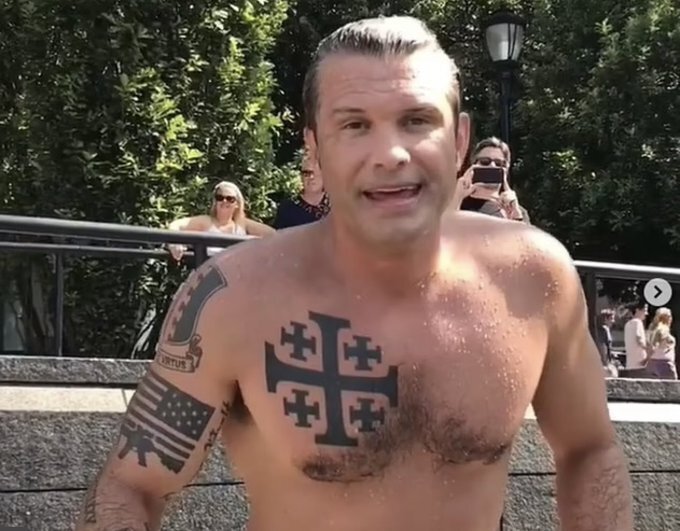On a recent occasion, the Associated Press published a controversial article targeting Pete Hegseth, President-Elect Donald Trump’s nominee for Secretary of Defense, labeling him an “Insider Threat” due to his Christianity-themed tattoos. Hegseth, a well-known figure who has authored best-selling books and serves as a host on Fox News, has a commendable military background, having spent nearly two decades in the Army National Guard and serving in Iraq and Afghanistan, where he attained the rank of Major and earned two Bronze Stars. The AP’s portrayal suggested a link between his tattoos, which include a Jerusalem Cross and the phrase “Deus Vult” (meaning “God wills it”), and white supremacist ideology. This critique was situated in a broader narrative arising from heightened scrutiny within the Pentagon post-January 6, 2021, when former President Trump’s administration targeted conservative figures in the military.
The AP article, which was shared widely on social media, equated Hegseth’s expressions of his Christian faith—its symbols and phrases—with extremist affiliations. This reporting struck many as grossly unjust, particularly as it essentially provided a framework where devout religious expression could be misconstrued as aligned with hate groups. Such a sentiment was echoed by commentators and social media users who perceived the AP’s critique to be not just a personal attack on Hegseth, but an alarming trend of labeling devout Christians as extremists. Hegseth’s tattoos were dismissed by detractors who misunderstood or misrepresented their significance.
Furthermore, the discourse intensified as prominent figures from the left echoed the AP’s narrative. Two guests on MSNBC labeled Hegseth directly as a white supremacist, invoking a wave of backlash from supporters who perceived this as a clear act of defamation. The situation highlighted a broader concern about media narratives that could malign individuals based on a skewed interpretation of their beliefs or identities. Critics pointed to instances of slander becoming increasingly normalized within public discourse, particularly targeting figures associated with conservative values or religious beliefs.
In the aftermath of the unfavorable press, Pete Hegseth took to social media to staunchly defend himself against the accusations. He expressed a determination not to allow the criticism to deter him and emphasized the need to protect conservative values and the rights of Christians from what he termed radical leftist targeting. Hegseth expressed resolve to put an end to systemic discrimination against God-fearing Americans should he assume his role at the Department of Defense, reaffirming that such biases would not be tolerated under his leadership. His assurance served as a rallying cry for supporters who aligned with his views on the protection of conservative and religious identities.
The underlying implications of this episode raise significant questions about the persistent theme of intolerance towards conservative Christian viewpoints in contemporary media narratives. Hegseth’s situation illuminates a critical line where religious beliefs intersect with accusations of extremism, potentially vilifying individuals for their faith. Many observers believe that the vilification of Hegseth and others like him represents a troubling trend that aims to marginalize voices that hold traditional values or emphasize a relationship with faith.
The call for the Senate to confirm Hegseth resonated with those who value a fair and balanced media approach, hoping that the truth would prevail amid what seemed to be a calculated smear campaign. Hegseth’s message struck a chord with Americans who are concerned about the integrity of public discourse and the potential ramifications of labeling individuals without substantial evidence. Supporters of Hegseth eagerly anticipated his confirmation, hopeful that a person of his convictions would bring a fresh perspective to the Department of Defense and counteract what they perceive as a prevailing bias against Christians and conservatives in American society.

